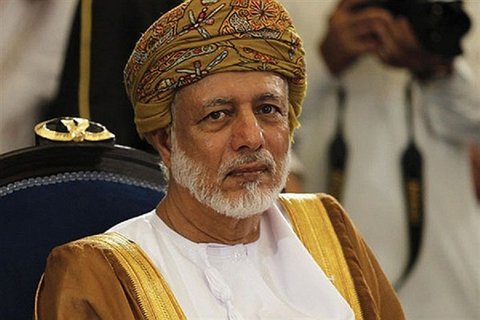Iran (IMNA) - The Omani Foreign Ministry had announced that this visit was within the framework of bilateral relations, consultations between the two countries and recent regional developments.
Alawi, whose country has acted as an intermediary between Iran and the United States in the past, made a similar visit to Iran in May.
The visit took place as tensions have been escalating in the Persian Gulf region.
After the meeting, Zarif wrote a post on his Twitter page that read saying, "Very pleased to host my distinguished friend Yousuf bin Alawi bin Abdullah, Oman’s FM, in Tehran today. Discussed effects of the US’ #EconomicTerrorism on Iran; bilateral relations, regional developments & security in the Persian Gulf, the Strait of Hormuz and the Gulf of Oman."
The United States has sent aircraft carriers, B-52 bombers, F-22 fighter jets, and several hundred troops to the region to counter what it claims Iran’s threats to the interests of America and its regional allies.
The tension is simmering as Iranian forces on July 19 impounded a British-flagged oil tanker in the Strait of Hormuz for involvement in an accident with an Iranian fishing boat, after the tanker ignored distress calls. The seizure took place 15 days after British forces impounded a supertanker carrying the Iranian oil in Gibraltar. Britain captured the supertanker by claiming that it was transporting oil to Syria in violation of EU sanctions.
Sources who have talked on condition of anonymity have said the main goal of the Omani chief diplomat’s trip to Tehran is to help settle the current oil tanker standoff between Iran and Britain.
Foreign Minister Mohammad Javad Zarif, in a tweet on July 20, said Iran’s conduct towards the British tanker had been fully within international maritime rules.
“Unlike the piracy in the Strait of Gibraltar, our action in the Persian Gulf is to uphold int’l maritime rules. As I said in NY, it is IRAN that guarantees the security of the Persian Gulf & the Strait of Hormuz. UK must cease being an accessory to #EconomicTerrorism of the US.”
‘All countries must follow intl. navigation law’
In a separate meeting with the Omani foreign minister on Saturday, Ali Shamkhani, Iran’s secretary of Supreme National Security Council, said all countries must follow the international law of navigation.
He noted that Iran’s seizure of the British oil tanker was “legal” and in line with navigation law while Britain’s act in seizing Iran’s oil was “piracy”.
Alawi said all countries should avoid any action in the Strait of Hormuz which causes crisis and imposes cost all on sides.
‘No disturbance allowed in the Strait of Hormuz’
Iranian Deputy Foreign Minister for Political Affairs Abbas Araghchi said on Tuesday that Iran will not let disturbance in shipping in the Strait of Hormuz.
“Iran will make any effort to maintain security in this region, especially in the Strait of Hormuz, and will not allow any disturbance in shipping in this sensitive region,” he said during a meeting with French Foreign Minister Jean-Yves Le Drian in Paris.
The Strait of Hormuz is a vital waterway through which a fifth of the world’s crude oil supplies and a quarter of liquefied natural gas shipments flow.
Sweden’s Foreign Ministry issued a statement on Wednesday announcing it is conducting talks with Iran and Britain over the Swedish-owned, British-flagged oil tanker seized by Iran to de-escalate regional tension, according to Reuters.
“Sweden is concerned by developments in the Strait of Hormuz. For Sweden and the EU it is vital that freedom of navigation is protected. Given the very serious situation in the region, it is also important that the measures taken help to ease tensions,” the Foreign Ministry said in a statement.
“Sweden is conducting a dialogue at various levels with the UK, Iran and other relevant stakeholders... and we hope to find a resolution to the issues and de-escalate the tense situation.”
Source: Tehrantimes


Your Comment